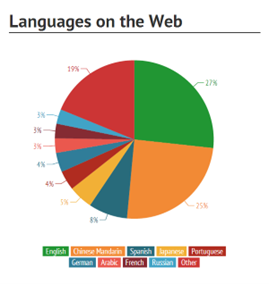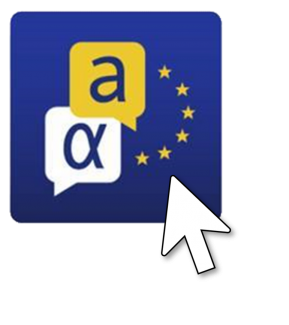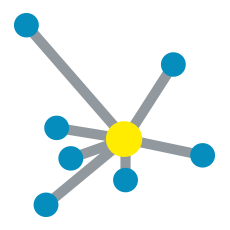Linguistic diversity is a fundamental value of the European Union enshrined in the Treaty on Europe-an Union and, as stated in the European Declaration on Digital Rights and Principles for the Digital Decade, everyone should have access to a multilingual online environment.

Today the Internet is multilingual and diverse. It offers many opportunities for sharing information and knowledge. Although this information and knowledge could be shared in all languages of the world, language presence on the World Wide Web is very disproportionate. Figure 1 illustrates this situation, demonstrating that almost 80% of Web content is in 9 languages, while all other languages account for only 19% of content.
The online linguistic disparity greatly limits opportunities of Europeans to access information and services in their mother tongue. To treat all Europeans equally, the European webspace should be truly multilingual. Simply using English is not a solution, as only 39% of Europeans master English well enough to communicate online and use digital services in this language. More than half of Euro-peans strongly prefer digital services that are available in their mother tongue. Moreover, eight in ten Europeans agree that all languages spoken within the EU should be treated equally.
Furthermore, if you sell internationally, having a multilingual website is an absolute must! The Internet gives businesses the power to compete on a global level. However, creating separate websites for each language and manually translating them can take up so much time and so many resources that you might simply justify ‘sticking to English’.
But we have good news for you! You can use technology to help you to cross language barriers and reach global audiences with a multilingual website powered by the eTranslation multilingual Word-Press plug-in!
The plug-in allows full website content translation in any language supported by eTranslation, the automated translation service provided by the EC. It is publicly available, easy to implement in WordPress websites and accessible for eTranslation authorised users.
The main advantages of the eTranslation multilingual WordPress plug-in:
- It is available in 30+ languages.
- It offers simple and effortless end-user involvement, i.e., no unnecessary manual steps to configure machine translation for every translatable content.
- It automatically translates most of the display features of the WordPress CMS (text, titles, table of contents, breadcrumbs, headers, footers, etc.).
- It provides a scenario for basic editing of the machine-translation output.
- It is compatible with the most popular WordPress themes and WordPress translation plug-ins.
- It allows simple connection to eTranslation using individual access credentials.
Have a look and try it yourself: https://code.europa.eu/elrc/etranslation-multilingual.







